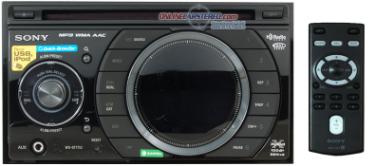


When the war ended, Congress rejected the Navy's efforts to have peacetime control of the radio industry and instructed that the Navy return the stations it had taken control of to the original owners. Contrary to instructions it had received, the Navy began purchasing large numbers of radio stations. Although the government planned to restore civilian ownership of the radio stations once the war ended, many United States Navy officials hoped to retain a monopoly on radio communication even after the war. When the United States entered World War I in April 1917, the government took control of most civilian radio stations in order to use them for the war effort. In 1912 it took over the assets of the bankrupt United Wireless Telegraph Company, and from that point forward it became the dominant radio communications company in the United States. As part of worldwide expansion, in 1899 American Marconi was organized as a subsidiary company, holding the rights to use the Marconi patents in the United States and Cuba.


In 1897, the Wireless Telegraph and Signal Company, Limited, was founded in London to promote the radio (then known as "wireless telegraphy") inventions of Guglielmo Marconi. RCA originated as a reorganization of the Marconi Wireless Telegraph Company of America (commonly called "American Marconi"). for their various products.Įstablishment by General Electric Company logo in 1921 stressed its leadership in international communication.
Rca sony license#
Today, RCA exists as a brand name only the various RCA trademarks are currently owned by Sony Music Entertainment and Technicolor, which in turn license the RCA brand name and trademarks to several other companies, including Voxx International, Curtis International, AVC Multimedia, TCL Corporation and Express LUCK International, Ltd. Though the company was rebounding by the mid-1980s, RCA never regained its former eminence and was reacquired by General Electric in 1986 over the next few years, GE liquidated most of the corporation's assets. RCA suffered enormous financial losses in the mainframe computer industry and other failed projects including the CED videodisc system. Additionally, RCA began to face increasing domestic competition from international electronics firms such as Sony, Philips, Matsushita and Mitsubishi. He became general manager at the company's founding, served as president from 1930 to 1965, and remained active as chairman of the board until the end of 1969.ĭuring the 1970s, RCA's seemingly impregnable stature as America's leader in technology, innovation and home entertainment began to weaken as the company attempted to expand beyond its main focus of the development and marketing of consumer electronics and communications into a diversified multinational conglomerate. During this period, RCA was closely identified with the leadership of David Sarnoff. RCA was also a pioneer in the introduction and development of television, both black and white and especially color television. The company also created the first nationwide American radio network, the National Broadcasting Company (NBC). In the early 1920s, RCA was at the forefront of the mushrooming radio industry as a major manufacturer of radio receivers, and the exclusive manufacturer of the first superheterodyne sets. In 1932, RCA became an independent company after the partners were required to divest their ownership as part of the settlement of a government antitrust suit.Īn innovative and progressive company, RCA was the dominant electronics and communications firm in the United States for over five decades. It was initially a patent trust owned by General Electric (GE), Westinghouse, AT&T Corporation and United Fruit Company. The RCA Corporation was a major American electronics company, which was founded in 1919 as the Radio Corporation of America. Technicolor SA (trademark rights only, 1987–2022)


 0 kommentar(er)
0 kommentar(er)
